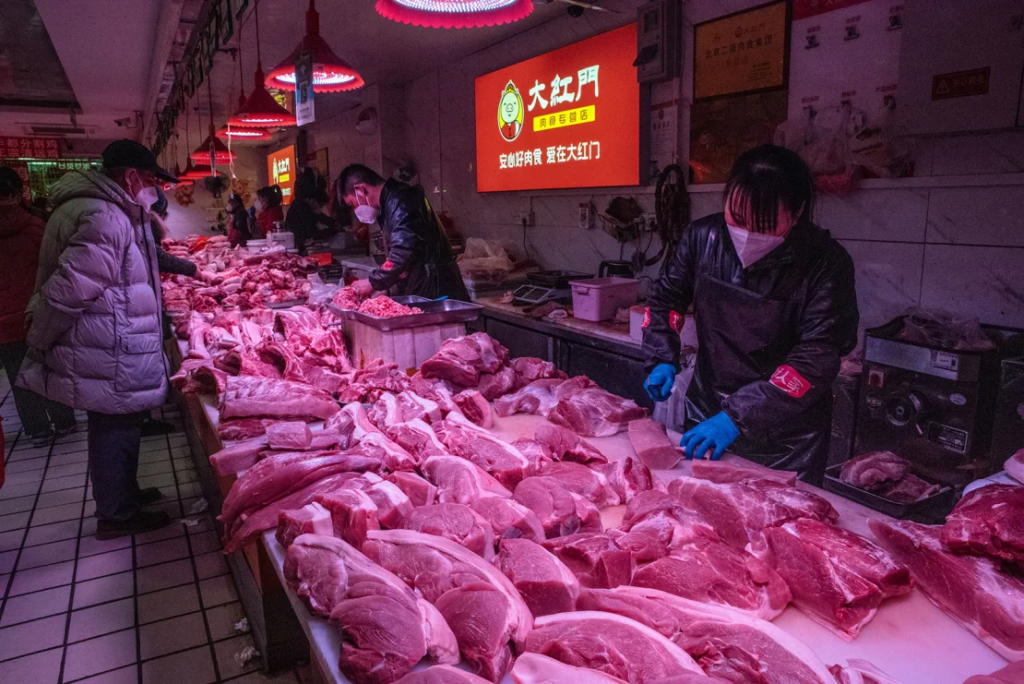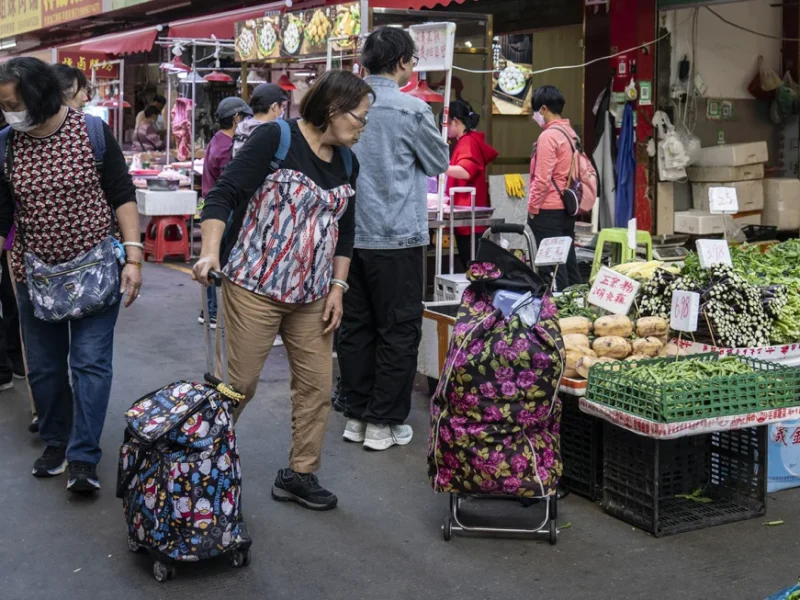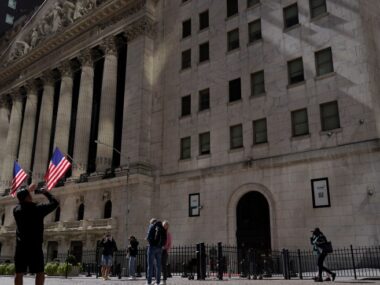In January, China’s consumer prices continued to decline, marking the most significant drop since the global recession in 2009 and highlighting significant economic challenges. According to the National Bureau of Statistics (NBS), the Consumer Price Index (CPI) fell by 0.8% compared to the previous year, marking the fourth consecutive month of decline.
Analysts attribute much of the sharp drop to seasonal factors, suggesting that the downturn may have already reached its lowest point. The NBS and some economists point out that holiday demand in January 2023, when CPI rose by 2.1%, contributed to making prices appear particularly weak this year.
HSBC economists noted that the Lunar New Year falling in February this year, compared to the end of January last year, caused distortions in the base for comparison.
China is working to boost consumer and investor confidence amidst various challenges, including a real estate downturn, stock market volatility, and declining exports. On Wednesday, it removed its main stock market regulator amid growing frustration over the substantial losses in recent years.
Weak consumer demand in January also contributed to the downward pressure on prices, according to economists. Food prices, especially, had a significant impact on the index, with the price of pork, a staple in the Chinese diet, plummeting by 17.3% compared to the previous year, marking the most substantial decline among all consumption items. Vegetable prices also dropped by nearly 12%.

Pork being offered for sale at a wholesale market in Beijing on January 12, 2023.
The National Bureau of Statistics (NBS) data revealed that the Producer Price Index (PPI), which gauges the cost of goods charged by factories to wholesalers, declined by 2.5% in January compared to the previous year. This represents a slight improvement from December’s 2.7% decrease.
Reaching the lowest point?
Lynn Song, the chief economist for Greater China at ING Economics, anticipates that consumer prices will likely increase starting from February onward.
According to Song, the data for January may appear worse than it actually is due to base effects, but when considering sequential data, the outlook appears more optimistic. In fact, compared to December, the Consumer Price Index (CPI) actually saw a 0.3% increase in January, marking the second consecutive month of growth. Additionally, prices are expected to be influenced by robust holiday demand this month, as China celebrates the Lunar New Year, which is the most significant and festive holiday, commencing on Saturday.
During this time, millions of individuals will journey home to reunite with their families, partaking in what is known as the “Spring Festival Travel Rush,” which typically lasts for 40 days. HSBC economists highlight that this Lunar New Year will be the first to fully emerge from the impact of Covid-19.
Preliminary data indicates a surge in travel compared to pre-pandemic levels. As of Tuesday, the Chinese transport ministry reported 2.2 million air trips and 12.9 million rail trips during the first 12 days of the travel rush, marking increases of 17% and 23% respectively from 2019.
This uptick in travel could signify a stronger demand for consumption during the holidays. Concurrently, prices for consumer services have also risen, with tourism-related prices seeing a 1.8% increase in January from the previous year, according to the NBS.
HSBC economists anticipate that consumption will continue to serve as a key support for the economy this year, with the strength in services consumption expanding to encompass more durable goods consumption.











